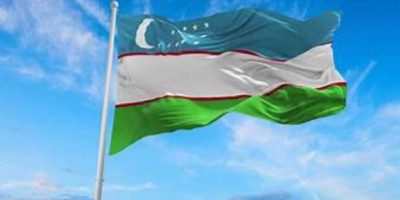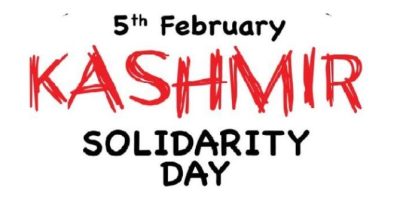Another Sham Elections in IIOJK

The people of Indian Illegally Occupied Jammu and Kashmir (IIOJK) are enduring another round of agony in the form of the state assembly’s sham elections. The polls are taking place after a gap of 10 years. The voting process will be held in three phases, and the result will be declared on the 8th of October. The outcome of these elections is eagerly awaited to gauge how the people of IIOJK react to the annulment of the Indian Constitution’s Articles 370 and 35A on the 5th of August 2019.
Some of the key political parties of India and the IIOJK vehemently oppose the abrogation of these constitutional provisions, including: Congress, Communist Party of India, Communist Party of India (Marxist), National Conference, Peoples Democratic Party, Dravida Munnetra Kazhagam (DMK), and Trinamool. Congress and its major IIOJK-based political ally, the National Conference, are jointly contesting the assembly elections on a manifesto to restore the expunged constitutional articles.
All Kashmiris irrespective of their caste creed, or religion are suffering, particularly due to the revocation of Article 35A, which has affected their ability to secure jobs, and buy or sell properties. Combined with the issuance of thousands of illegal domiciles of Jammu & Kashmir to non-Kashmiris, the demographic structure of IIOJK is undergoing an undesirable transformation.
The Bharatiya Janata Party (BJP) aims to win the upcoming IIOJK elections, at any cost, to further consolidate the illegal annexation of Jammu and Kashmir. Hence, panic has set in among the top BJP leadership. India’s external affairs, defence and interior ministers are working in overdrive to secure a BJP victory, by hook or crook. To achieve this, they are struggling to legitimise the illegitimate Indian action of 5 August.
When asked about the status of IIOJK on 30 August, Indian External Affairs Minister Dr S Jaishankar said that Kashmir’s issue stood resolved through the abrogation of Article 370. He added after this, not much was left to discuss with Pakistan, therefore “the era of uninterrupted dialogue with Pakistan is over”. Home Minister Amit Shah, while unveiling the BJP’s manifesto for the upcoming IIOJK elections, ruled out the restoration of Article 370, claiming that the provision had “become history”. Additionally, while addressing an election rally in IIOJK, Defence Minister Rajnath Singh remarked “No power can restore Article 370.” This reflects the collective mindset of the RSS-BJP alliance.
Pakistan rejected these Indian claims about IIOJK, labelling them as “misleading” and “dangerously delusional”. On 1 September, Pakistan’s Foreign Office spokesperson emphasised that the Kashmir dispute is an “internationally recognised issue that must be resolved through the United Nations Security Council (UNSC) resolutions and according to the wishes of the Kashmiri people”. India’s unilateral actions in IIOJK cannot change this reality. Pakistan has also urged India to abandon its “provocative rhetoric” concerning the region and engage in a meaningful dialogue for a just and lasting resolution of the IIOJK dispute.
The Kashmir dispute is an unfinished agenda from the partition of Indian subcontinent in 1947. The Kashmir conflict has been on the UN agenda since 1948, making it one of the oldest disputes of the contemporary world order. Interestingly, it was not Pakistan that took the issue to the UN; India did it! India sought the settlement of the Kashmir issue through the UN good offices on 1 January 1948. Since then, the UN has adopted over a dozen resolutions, all of which India has defied with impunity.
The first UNSC resolution on Kashmir was 38/1948. It “established the United Nations Commission for India and Pakistan (UNCIP) to investigate the issues and mediate between the two countries”. The second landmark resolution was 47/1948, passed on 21 April 1948, whereby India and Pakistan agreed to resolve the dispute through a UN-supervised plebsite. This also led the way to the establishment of the “United Nations Military Observer Group in India and Pakistan (UNMOGIP) to monitor the ceasefire line. The UNMOGIP continues to have its offices in Pakistan and India. The last Kashmir conflict-specific resolution was passed in the aftermath of the nuclearisation of both countries [UNSCR 1172/1998]. This resolution “urges India and Pakistan to resume dialogue on all outstanding issues to find mutually acceptable solutions that address the root causes of such tensions, including Kashmir”.
India’s relationship with Pakistan remains volatile, with border disputes in Jammu and sowing Kashmir as a perpetual flashpoint. It is out of the question that the IIOJK dispute, has been, or could be, settled unilaterally by India. Such claims by India are not only misleading but dangerously delusional. If East Timor and South Sudan can be granted the right to self-determination, there is no justification for denying this fundamental right to the Kashmiri people.
The resolution of this long-standing conflict is pivotal to achieving viable stability in South Asia. The UN Secretary General needs to appoint a special representative for Kashmir and initiate the process for holding a UN-supervised plebiscite in IIOJK. While Pakistan remains committed to diplomacy and dialogue, any hostile actions by India will be met with unyielding resolve.
Air Commodore Khalid Iqbal (Retd) is Director at the Centre for Aerospace and Security Studies (CASS), Lahore Pakistan. He may be reached at [email protected]
Related News

Investing in Tomorrow: How Uzbekistan is transforming tts youth into an engine of national progress
By: Adam Saud Future of any country lies in the destiny of its youth. ThereRead More

Kashmir Solidarity Day and an Unfulfilled Right
by Muhammad Mohsin Iqbal Conflicts among human societies are as old as civilisation itself. DifferencesRead More


Comments are Closed